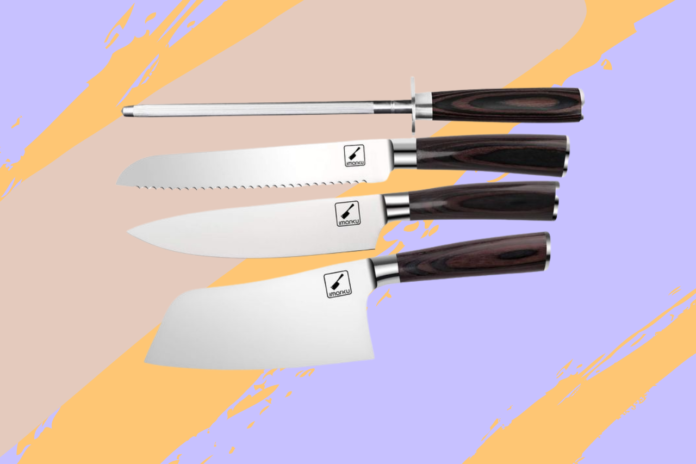If you’re living in London, or any big city in the UK for that matter, no doubt you’ve seen (and identified with) that Floradix advert; you know, the one with the yawning woman which asks ‘are you tired of being tired?’.
Of course, it’s positioned perfectly to reach those who empathise the most, and with commuters tentatively returning in 2022, the advert feels more pertinent than ever.
No doubt a contagious yawn is voluntarily triggered. And no doubt you’ve considered an investment in Floradix, whatever it is. Instead of resorting to a supplement to help reduce the feeling of tiredness, why not try these first; our 7 IDEAL fatigue fighting tips, to help you feel more energised.
Better Your Bedtime
Sleep is the cornerstone of a healthy lifestyle, the thing on which your body is most dependent for its base level of energy. If you want to stay focused, sharp and productive during the day, then you need to work on your bedtime routine.
We’re not being presumptuous here; everyone could do with a little evening audit. A consistent, early turn in is key. Indeed, according to the Royal college of Psychiatrists, you should go to bed and get up at the same time every day. Doing so helps your body clock get into a strict, incredibly useful rhythm.
What else? Well, a period of calm before bed, probably in a bath, possibly listening to a story, certainly not staring into the blue light of your phone (not even for IDEAL magazine) is also crucial.
Eliminating distractions from the bedroom really matters, too. Don’t bring your phone to bed (use an alarm clock, before you protest), remove the TV from your bedroom, and make time for downtime, such as meditation, prior to turning in properly. Check out our 5 IDEAL steps to the perfect bedtime routine for much of the same, but in a little more detail.
Less Caffeine
When we’re tired we drink coffee; it’s become an almost automatic reaction to counter any sense of lagging. Well, surprise surprise, counterintuitively, this default response can have a hugely negative effect on your energy levels. As a stimulant, caffeine will temporarily boost those levels, but the delicious drink’s relationship with fatigue is actually far more complex. Nope, it’s not the saviour we all believe it to be.
Caffeine blocks adenosine, which regulates our sleep cycle and messes with that all important body clock routine we mentioned, and once the coffee wears off, a premature drowsiness is likely to set in. What’s more, it’s a diuretic, and dehydration leads to tiredness. Go figure. So, whilst we’re not suggesting you cut out the coffees entirely (you’re only human), it might be wise to cut back, particularly post noon.
If you feel like you’re dependent on an energising pick-me-up in the morning, then instead seek coffee alternatives and replacements, whether those are probiotic drinks like kombucha and yakult, unfiltered apple cider vinegar or chai tea.
Read: 7 morning coffee replacements to kick your day off right

…& Alcohol
Boozing, especially when done heavily and with abandon, can be really disruptive to a good night’s sleep. While a nice glass of wine might be an enjoyable way to de-stress at the end of a long and hectic day, alcohol can have a negative impact on our rapid eye movement (REM) sleep, which is often considered the most restorative stage of sleep.
And though you may fall asleep faster after a couple of drinks, you’ll spend less time in your REM phase of sleep – meaning you’re more likely to wake up feeling unrested and drowsy. If you still want to enjoy a nightcap in the evening, make sure you only have one, and have it as early as possible (within reason, we don’t mean the morning here guys) to minimise the effects.
If you’re going out with friends, try drinking a non-alcoholic drink, but make sure it’s not a super sugary one, as this will also keep you awake and jittery longer than desired.
Get Moving
When you’re feeling tired, exercise is probably the last thing on your mind. However, according to the NHS, just a single 15 minute walk can give you a massive energy boost and set you up for tackling the rest of the day. If simply taking a stroll can do that, imagine how much extra energy you’ll get from a proper exercise each day.
Yep, this one is seemingly counterintuitive but actually self-actualising; the more effort you put into cardio based exercise, the more energy you’ll have later down the line. So, even if you’re feeling too tired to work out, break the mould, put in a little effort and reap the rewards.
Reduce Stress & Relax
Stress is a surefire way to use up all your energy; all that fretting does no good for your sense of vitality. So, although we realise this is somewhat juxtaposed with our previous advice to keep active, make sure you introduce relaxing activities into your day, not so much to ‘recharge’ as to fight off that energy sapper, stress.
Meditation is a great way to take a little time out, recalibrate and get ready to take on the world once again. Take a moment each day (well, a recommended ten minutes for meditating, actually) and feel those accumulative energy levels rise. Mindfulness is also suggested to improve concentration, focus and vigour; is there anything it can’t do?

Drink More Water
Drinking more water is perhaps the easiest way to help fight fatigue. Staying hydrated boosts your energy levels as well as your ability to concentrate, and that’s what you’re here for, right? In the UK, it’s recommended that we neck between six and eight glasses of fluid each day, depending on activity levels and climate of course. Though there’s no denying that sometimes this can be difficult to achieve, there are ways to include water in your diet. Your energy levels will thank you for it.
Change The Way You Eat
Your diet also has a huge impact on those energy levels. Try to make healthy food choices with foods that provide sustained energy, like those which are high in complex carbohydrates (brown rice, whole-wheat pasta, sweet potato, squash) and protein. Ensure you have a good breakfast every morning and eat little and often throughout the day to keep energy levels up and consistent. Iron rich foods, like spinach, liver, beans and nuts are also great for maintaining that vitality.
On the flipside, don’t rely on caffeine and sweets for a quick pick-me-up as the crash will simply be postponed rather than prevented. And food designed to make you feel full fast, particularly that evil stuff from even more evil fast food chains, will have you sluggish and slow soon after. Avoid these like the plague.
And with that, and because we’ve followed all these tips so scrupulously, we’ve gotta run. Goodbye!





